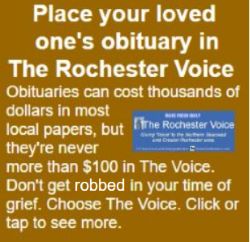ROCHESTER - The number of drug overdoses in Rochester spiked last year by more than two thirds after rising 30 percent and 20 percent the previous two years, according to figures released last week by the Rochester Police Department.
In 2014, the city recorded 81 overdoses, of which 11 were fatal. Since then, 106 overdoses were recorded in 2015, including 10 that were fatal; 128 in 2016, with 19 that resulted in death; and 235 this past year, with 21 that were fatal.
The one bit of relatively good news is a drop in the percentage of fatals vs. overdoses this year, some of which can be partially attributable to the use of Narcan, an opiate overdose antidote.
Narcan was used by police officers to revive opioid overdoses in the city 18 times in 2016 and 32 times in 2017, said Rochester Police Capt. Jason Thomas today.
Thomas added other first responders like paramedics from Frisbie Memorial Hospital also administered Narcan often, but no numbers were available on an exact amount.
He also noted that many family members, friends and associates of heroin and fentanyl users also carry Narcan, which may have also reduced the number of fatal overdoses.
Rochester Police routinely offer pamphlets and phone numbers regarding opioid treatment options to anyone they come in contact with that appears to be suffering from addiction, Thomas said.
"We provide info on recovery centers and will give them a ride to see one of the drug counselors at Frisbie," Thomas added.
The Rochester Community Recovery Center, SOS Recovery Center and Groups are three of the current options those battling addiction have to reach out to in Rochester.
Marla Snow, the assistant coordinator at the Rochester Community Center, said she wasn't surprised by the increase in 2017, but said she does see some good signs on an everyday basis.
She said that the center, which opened in October 2016, began with maybe just one or two people coming in for support on a daily basis, but now that number is up to a dozen or so.
"We work with people with or without insurance to find them the best care and resources for their situation," Snow said today.
The center also recently took over the CAR (Community Access to Recover) Program which works with Frisbie Memorial Hospital patients who overdose or are in severe withdrawal to speak to a recovery coach 24/7.














